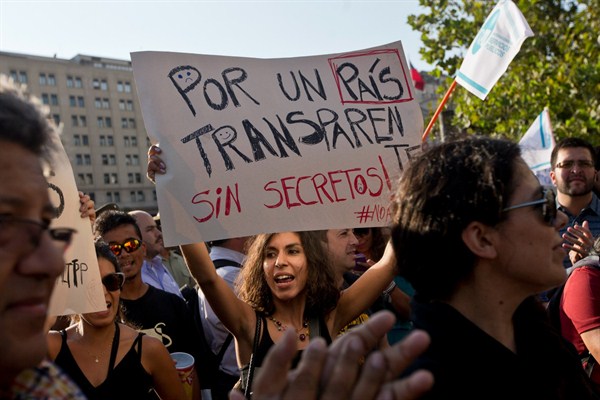Editor’s note: This article is part of an ongoing WPR series on the Trans-Pacific Partnership and the potential impact on members’ economies.
Last month, following large protests against the Trans-Pacific Partnership (TPP) in Santiago, Chilean Foreign Minister Heraldo Munoz defended the 12-country trade pact, calling it a politically and economically sound route for Chile. In an email interview, Roland Benedikter, a senior research scholar at the Council on Hemispheric Affairs and author of “Chile in Transition: Prospects and Challenges of Latin America’s Forerunner of Development,” discussed the benefits and drawbacks of Chile’s membership in the TPP.
WPR: What are the expected economic benefits for Chile from the TPP, and who are the expected “winners”?

